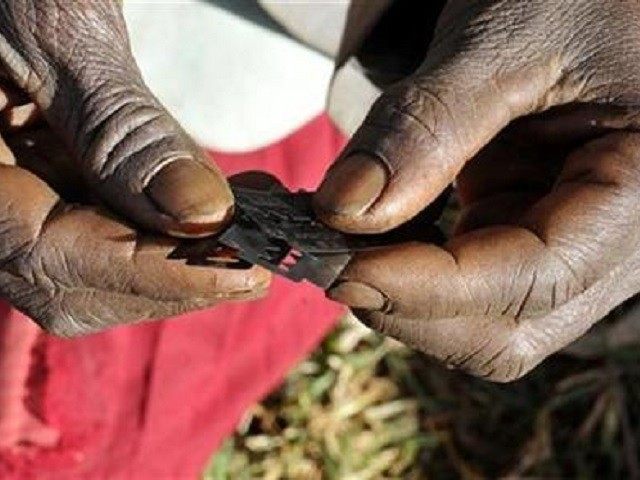Doctors at a hospital in Birmingham are having to deal with six girls a week who have suffered female genital mutilation (FGM), internal figures reveal.
The Heartlands Hospital in the Midlands have had to deal with 1,500 cased of FGM over the past five years, despite the barbaric practise and facilitating being illegal in the UK, the Daily Mail reports.
The hospital has a special clinic in its labour ward, one of a number which are necessary in areas with a high ethnic population in the UK.
Each day, 15 new cases of the practise, which involves cutting a girl’s genitals and in some cases sewing the vagina closed bar a tiny hole so they don’t derive pleasure from sex and stay ‘pure’, are reported to hospitals around the country.
The practise is described by the Orchid Charity as a ‘cultural problem’ which explains why there are high rates of the crime clustered around certain ethnic groups and thus a high rate in Birmingham.
The hospital saw 349 cases its biggest number of cases in 2013, up from 288 in 2012. It is thought to be one of the centres who has seen a large number of the 463 cases identified every month.
For many years the issue wasn’t talked about, being seen as an issue concerning certain ethnic groups, predominantly from Islamic African countries. But after vocal campaigns, politicians have woken up to the crimes taking place in communities in this country.
It was only this week that an Egyptian doctor was convicted for mutilating a child: Dr Raslan Fadl was convicted on appeal and sentenced to two years in jail for manslaughter and three months for performing FGM on 13 year old Soheir al-Batea.
In an important step in the fight against eradicating FGM al-Batea’s father, who requested the procedure, was also convicted and given a three month suspended sentence in a verdict which has been called a “monumental victory” for women and girls in a country which has one of the world’s highest prevalence rates of FGM.
But in the UK, no one has ever been convicted, despite cases being taken seriously by the Crown Prosecution Service.
NSPCC Head of Child Protection Operations John Cameron said: ‘These figures show the NHS is consistently seeing a high number of FGM cases every month.
“FGM is a live public health issue and it is vital all health professionals are trained to spot the signs of FGM and that girls who are subjected to this brutal practice get the post-traumatic support they deserve.
“We need to ensure doctors, midwives and other healthcare professionals are working effectively together with children’s services to support and protect FGM victims and their family members.”
It is believed the vast majority of victims were born abroad and then moved to the UK in childhood or later life. They are often only identified when they attend pre-natal checks or are given medical treatment for infections and other conditions linked to the procedure.
FGM has been illegal in the UK since 1984 and the law was extended in 2003 to include anyone taking a child out of the UK to be cut. The crime carries a 14 year jail sentence.
Campaigning charity Equality Now estimate that more than 100,000 women have migrated to England and Wales after suffering FGM, up 50 per cent since 2001.
The figures were released after the Muslim Women’s Network told West Midlands Police and Crime Commissioner they were struggling to deal with the level of demand for care.
Chair of the charity Shaita Gohir MBE said that funding was needed for specific counselling in the area.
Birmingham has a huge percentage of non white residents, with the 2011 census showing 26 per cent of the city’s population gave their ethnicity of Asian or Asian-British.
At the start of the year, Britain’s top family judge, Sir James Munby said local councils needed to do more to battle ‘the great evil’ of FGM.
“Plainly, given the nature of the evil, prevention is infinitely better than cure.
“Local authorities need to be pro-active and vigilant in taking appropriate protective measures to prevent girls being subjected to FGM.
“The court must not hesitate to use every weapon in its protective arsenal if faced with a case of actual or anticipated FGM.’
Julia Lalla-Maharajh, CEO and Founder, Orchid Project told Breitbart London,
“If we are to end female genital cutting, we need to understand why communities carry it out. It is a social norm that is often deeply embedded across an entire ethnic group. Even if individuals disagree with cutting, it’s incredibly hard to disobey social norms.”

COMMENTS
Please let us know if you're having issues with commenting.